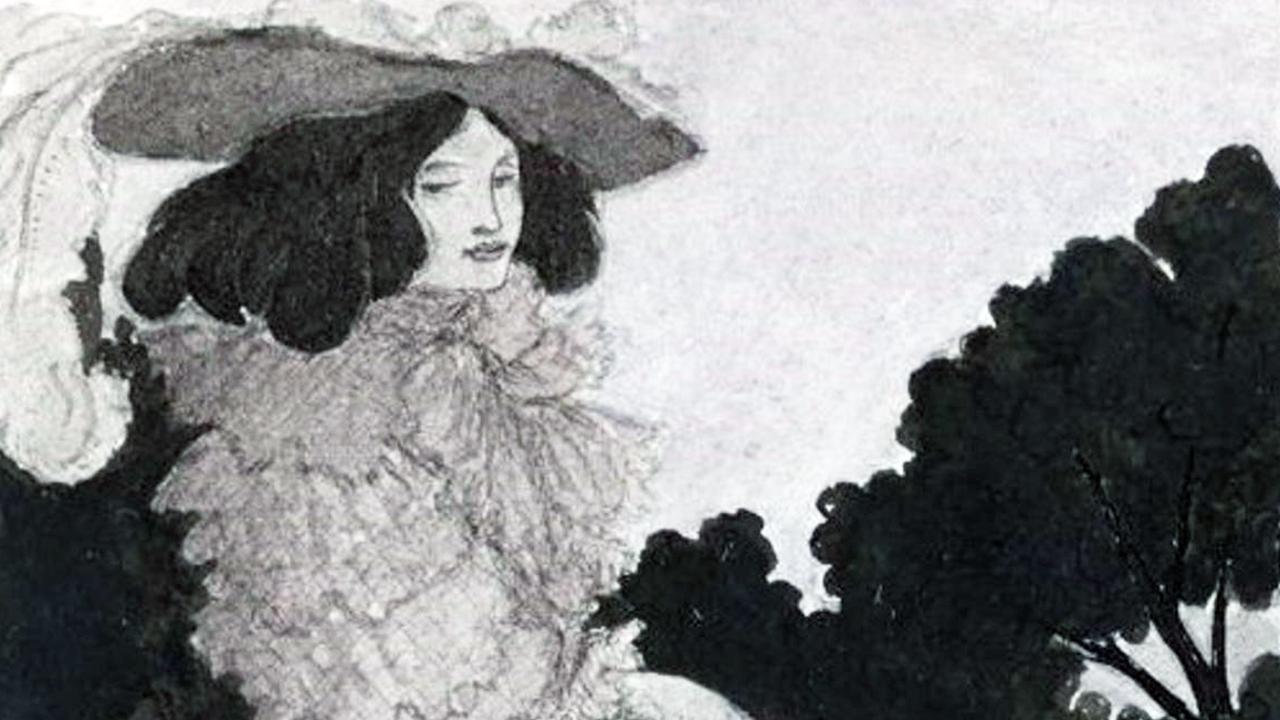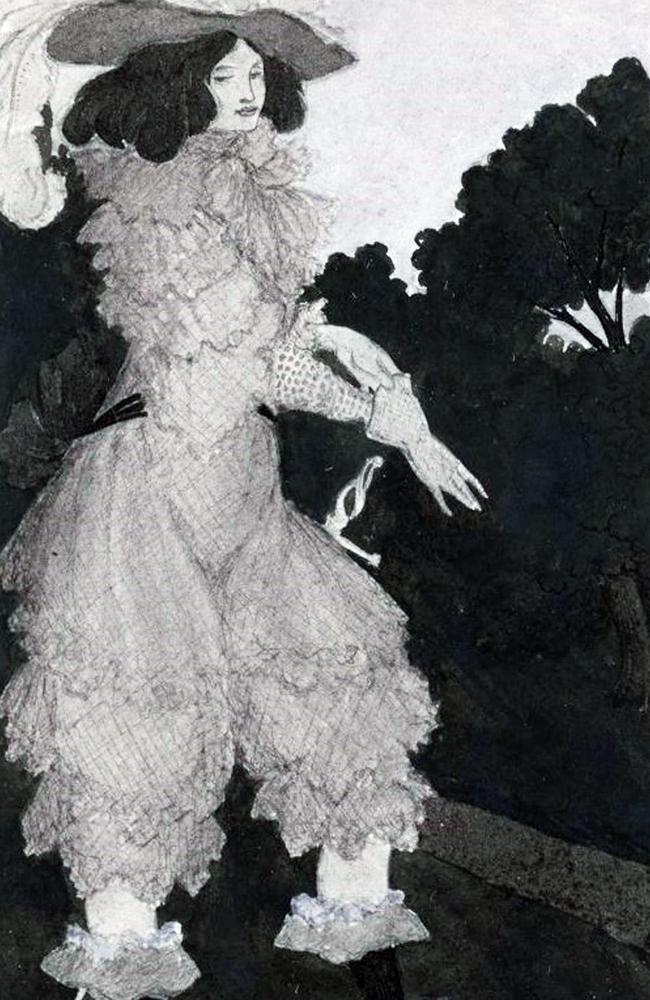The wild life of 17th Century sword fighting bisexual opera singer, Julie D’Aubigny
She was born 346 years ago but probably had more action in her life in just one month than most of us will have in a lifetime.

Julie D’Aubigny, otherwise known as La Maupin, was born 346 years ago but probably had more action in her life in just one month than most of us will have in a lifetime.
La Maupin killed at least ten men in life-or-death duels while juggling nightly opera shows where she was centre stage, said to have the voice of an angel.
Not content with operatic stardom, La Maupin lived life to the full, taking Holy Orders so she could enter a nunnery and abduct her girlfriend, who had been banished to a nunnery after being caught in a passionate embrace with La Maupin…..(we’ll get to that juicy tale later)
La Maupin also dabbled in corpse stealing and she was a master seductress, setting male and female hearts on fire with her beauty and intellect. Her life was so violent, loving and intense she ended up being pardoned by the king of France not once, but twice.
Related: Mary Celeste: Enduring mystery of world’s most famous ghost ship
Related: Paris attacks anniversary: Woman fakes being victim, jailed for fraud
Related: Australia’s tragic beginnings: The grotesque story of the Second Fleet
Early years
Born into extreme wealth, La Maupin was the daughter of the Grand Squire of France, Gaston d’Aubigny — the man in charge of training King Louis XIV’s pages as well as looking after the royal stables. He taught his daughter to sword fight from a young age, giving her the same training as the King’s squires.
When she wasn’t flashing her sword around, she was taught the finer skills of gambling, fist fighting, horseback riding and everything she needed to know about using violence to defend herself.
Described as a statuesque beauty with dark auburn hair and blue eyes, she dressed as a boy from a young age and, thanks to her father, she also excelled at drawing, reading and dancing.
Above all, her father helped her develop sword fighting skills that surpassed most of her male contemporaries.
When she was just 14, La Maupin became the mistress of the Count d’Armagnac. Unable to marry her, he arranged for La Maupin to marry a man named Sieur de Maupin of Saint-Germain-en-Laye.
But, early in the marriage, when her husband was posted to the south of France, La Maupin decided to stay in Paris where, in 1687 she hooked up with an assistant fencing master, Serannes. But when Serannes was accused of killing a man in an illegal dual, the couple was forced to flee to Marseilles and live in hiding.
Life on the road was never dull; the couple earned a crust singing duets in taverns and giving fencing demonstrations at town fairs. La Maupin dressed as a man; it was a fashion statement she kept for the rest of her life.
Her sword fighting skills were said to be so incredible, most people thought she was actually a man pretending to be a woman dressed as a man.
Here’s what the fencing demonstration involved:
La Maupin pulled out her sword, sang a son and threw a challenge to the audience to fight her in a duel. If anyone was game enough to step up, she’d make them look completely useless with the sword and then sing a humiliating song about the loser.
One night in a tavern, surrounded by drunken males, the story goes that she was so tired of being accused of being male, she tore off her shirt, giving her audience sufficient proof that she was, indeed, all woman.
It wasn’t long before La Maupin tired of her lover, Serannes, ditching him for a local merchant’s daughter. But when the young woman’s father discovered their secret relationship he sent his daughter to a nunnery; the Visitandines convent in Avignon.

Breaking into the nunnery
La Maupin concocted a genius plan to rescue her girlfriend. Knowing how impossible it’d be to break into a nunnery, she managed to enter the convent as a postulant, taking Holy Orders under the guise she was desperate to join the religion herself.
Once inside the nunnery, La Maupin had a brainwave: Why not steal the corpse of a recently deceased nun, put the body in her girlfriend’s bed and set the room on fire?
With the fire blazing, it was the perfect cover for the ladies’ escape as they left the nunnery far behind them. And yet, despite going to great lengths to be with her lover, the relationship was not meant to be. Eventually, the young lady either decided to return to her family, or perhaps La Maupin bored of her lover and sent her on her merry way home.
Meanwhile, La Maupin was charged in absentia with arson, kidnapping and body snatching. Interestingly, she was charged as a male and sentenced to death by fire.
It’s believed the reason she was charged as a male was because the presiding judges couldn’t fathom that a woman would kidnap a woman from a convent (or anywhere, really) and run away with her.
This is where La Maupin’s father stepped in and managed to convince his boss, Louis XIV, to revoke the sentence. Thankfully the King saved her life because all this drama happened before La Maupin turned 20. She had at least another decade of death-defying frivolity and hell raising to accomplish.

Opera singing
La Maupin was accepted by the world-renowned Paris Opéra in 1690, where she made her debut as Pallas Athena in Cadmus et Hermione by Jean-Baptiste Lully. She enjoyed regular performances with the Opera, first as a soprano and eventually in a more natural contralto range. The Marquis de Dangeau, a well-known figure in the Court of Versailles, wrote in his journal in 1701 after seeing La Maupin perform that she had “the most beautiful voice in the world”.
In Paris, La Maupin, whose stage name was Mademoiselle de Maupin, became popular with the audience although she had a reputation among other performers as being “difficult”.
Scandal followed La Maupin into 1695 when she went to a society ball, dressed as a man, and was caught kissing a young woman. The woman’s boyfriend, who happened to be a nobleman, was not impressed and, with two others, challenged her to three separate duels.
She took the three men out into the courtyard where she managed to beat them all, leaving them bleeding and dying while she returned to the party. Anti-duelling laws at the time were very severe, so La Maupin was charged with instigating illegal duels. She was forced to flee to Brussels and wait for the dust to settle.

A German prince and a pardon
In Brussels, La Maupin wasted no time in finding herself a new lover; no less than Maximilian II Emanuel, Elector of Bavaria (a German prince). There are various stories about how this relationship ended and all of them are dramatic and spectacular. The most interesting version is that Emanuel bribed her to take 4,000 francs if she’d leave Brussels but instead, she threw the money at him and kicked him down the stairs.
Still wanted on the illegal duelling charges, La Maupin managed to get a second royal pardon; the King used the reasoning that the law governed men, but there were no laws surrounding women and duelling.
La Maupin returned to the Paris Opera where she delighted audiences and managed to attract plenty of attention off stage, fighting with the tenor, Louis Gaulard Dumesny, who was pestering and sexually harassing the female singers, including La Maupin.
She apparently put her sword in his face and demanded a duel but, when he refused to fight her, she beat him with a cane and stole his watch and snuff bottle.
Later, when recounting the story to others, he said he’d been assaulted by a “gang of thieves”. La Maupin, clearly wanting to take credit for her assault, spread the word that Dumesny was a liar who had been beaten by a woman, because he was assaulting women.
Next, La Maupin fell in love with Fanchon Moreau, a celebrated beauty who was said to be the mistress of the Grand Dauphin, the eldest son of King Louis XIV. La Maupin was said to be heartbroken when Moreau rejected her and attempted suicide.
The final years
The greatest love of La Maupin’s life, however, was also her last; Madame la Marquise de Florensac, one of the most famous, wealthy and beautiful women in France. The women lived together in happiness for just two years before de Florensac died of an illness, leaving La Maupin so devastated she quit the opera, spending her final years in a convent.
Dying at the age of 33, La Maupin left a trail of broken hearts, death and absolute wonder. She was a perfect example of those souls that shine brightly but for only a short time. Author Kelly Gardiner wrote a book about La Maupin, Godess, and told NPR about the legacy she left: “Whenever society starts to think about, what does gender mean, what does sexuality mean, she’s just one of the names that comes up and people start thinking about her and talking about her, and portraying her all over again.”
— LJ Charleston is a historical journalist for news.com.au. Follow her on Twitter @LJCharleston



